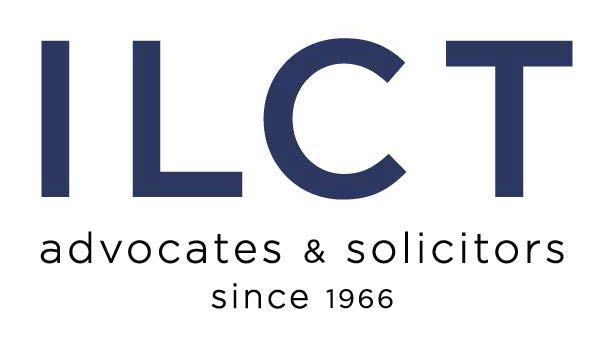Legal Update: Introduction of the Thailand Digital Arrival Card (TDAC) and Its Implications for Foreign Entrants
Effective 1 May 2025, the Kingdom of Thailand will implement the Thailand Digital Arrival Card (TDAC), a mandatory online system that replaces the long-standing TM6 paper form. This transition forms part of the government’s broader digitalization initiative and signifies a substantial procedural transformation for inbound foreign nationals. Stakeholders involved in cross-border mobility and compliance should promptly assess the potential operational and legal ramifications of this change.
Overview of the Thailand Digital Arrival Card (TDAC)
The TDAC is a digital platform through which travelers are required to submit their personal and travel details prior to entering Thailand. The system is designed to apply to all foreign nationals arriving by air, land, or sea. As currently drafted, exemptions appear to apply only to transit passengers who do not undergo immigration clearance and to individuals holding a Border Pass for specified entry points.
Nonetheless, the current draft does not expressly address whether the TDAC requirements extend to certain categories of foreign nationals who may benefit from special privileges or immunities, including:
- Foreign government representatives visiting Thailand on official invitation;
- Diplomats and consular officers traveling under diplomatic or official passports;
- Officials of international organizations (e.g. United Nations personnel) traveling with internationally recognized documents such as the Laissez-Passer;
- Individuals covered by immunities and protections under international agreements to which Thailand is a party, including the Vienna Conventions on Diplomatic and Consular Relations (1961 and 1963, respectively).
In line with national legislation, it is also worth noting that members of diplomatic and consular missions, as well as international officials of the United Nations and its specialized agencies performing their duties in Thailand, are exempted from the Work Permit requirement under the Thai Foreign Employment Act. This reinforces the relevance of clarifying whether such individuals should also be exempted from the TDAC framework.
To ensure legal certainty and facilitate seamless compliance, it would be beneficial for the relevant authorities to provide additional clarification as to whether these categories are subject to, or exempted from, the TDAC procedures.
Application Process and Requirements
Travelers must complete the TDAC online within 72 hours before arriving in Thailand. The official submission portal is accessible at tdac.immigration.go.th. The process consists of the following steps:
- Access the Portal: Select “Arrival Card” on the TDAC homepage.
- Enter Personal Data: Input name, date of birth, nationality, and passport information.
- Provide Travel Information: Include expected date of entry, means of transport, purpose of visit, and address in Thailand.
- Health Declaration: Report any countries visited in the 14 days preceding arrival.
- Review and Confirm: Verify the accuracy of all entries.
- Submit and Receive Confirmation: Provide an email address to receive the TDAC in PDF format for presentation at immigration control.
Compliance Concerns and Legal Observations
At present, the draft text provides no specific penalties or legal sanctions for failure to complete the TDAC. This omission raises concerns regarding enforceability and compliance certainty. In the absence of defined legal consequences, the practical implications for travelers who arrive without a valid TDAC remain ambiguous and could create confusion at points of entry.
Additionally, the proposed implementation date of 1 May 2025 may prove overly ambitious. Given the potentially broad scope of application, including short-term visitors and first-time travelers unfamiliar with the digital entry procedures, this short lead time could result in widespread non-compliance. Adequate public dissemination, stakeholder training, and transitional measures are strongly advised to ensure seamless adoption.
Recommendations for Stakeholders
Entities responsible for international mobility—such as legal counsel, travel coordinators, corporate mobility departments, and travel agencies—should update internal protocols to reflect the TDAC requirement. Timely communication with affected travelers is critical to minimizing disruption.
In parallel, Thai authorities are urged to issue further guidance clarifying the categories of foreigners subject to the TDAC, the applicable sanctions (if any), and any transitional grace periods. Without such clarity, the rollout of the TDAC may generate legal uncertainty, particularly in cases involving internationally protected individuals.
About ILCT Ltd.
ILCT Ltd. is a full-service law firm based in Bangkok, Thailand, with over 50 years of experience providing comprehensive legal solutions to domestic and international clients. Our firm offers expertise across a wide spectrum of legal fields, including corporate and commercial law, mergers and acquisitions, intellectual property, dispute resolution, taxation, regulatory compliance, and foreign investment. Beyond these core areas, ILCT Ltd. delivers tailored legal services to meet the diverse needs of businesses operating in various industries, ensuring strategic, efficient, and compliant solutions in an ever-evolving legal landscape. Our multidisciplinary approach, combined with in-depth knowledge of Thai and international law, enables us to assist clients in navigating complex legal and business challenges with confidence and clarity.
For more information, please contact us at: law@ilct.co.th
Legal Update: Introduction of the Thailand Digital Arrival Card (TDAC) and Its Implications for Foreign Entrants [please download]
